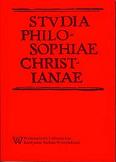Heidegger and Merleau-Ponty: Art. and the Bodily Emergence of Meaning
Heidegger and Merleau-Ponty: Art. and the Bodily Emergence of Meaning
Author(s): Gustavo Gomez PerezSubject(s): Philosophy
Published by: Wydawnictwo Naukowe Uniwersytetu Kardynała Stefana Wyszyńskiego w Warszawie
Keywords: Heidegger Martin; Merleau-Ponty; phenomenology; body; gesture; language; art; world
Summary/Abstract: The present paper explores parallels between Heidegger’s and Merleau-Ponty’s views on the body phenomenon problem, paticularly considering the articulation between language, gesture and art. Initially, I argue that Heidegger and Merleu-Ponty find similar connections between body and language, in light of an ontological approach to language in which language is considered to be a structural component of existence. Accordingly, I suggest that both philosophers introduce the notion of gesture in order to articulate the relationship between body and language, thus showing that meaning is inherent to bodily comportments, something that is particularly clear in artistic practices. Then, I conclude that both Heidegger and Merleau-Ponty consider gesture to be a creative response to the world, which discloses latent meanings of things, just as happens with the work of art. In this sense, the notion of gesture alludes to a spontaneous or creative capacity that belongs to Being, that pertains to our background understanding of the world, and therefore cannot be confined either to the limits of a subject or to the limits of a body-object.
Journal: Studia Philosophiae Christianae
- Issue Year: 49/2013
- Issue No: 4
- Page Range: 109-136
- Page Count: 28

